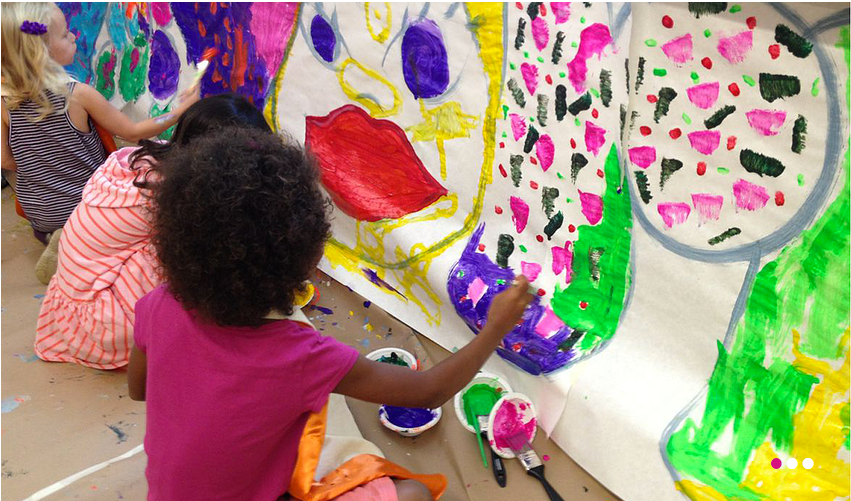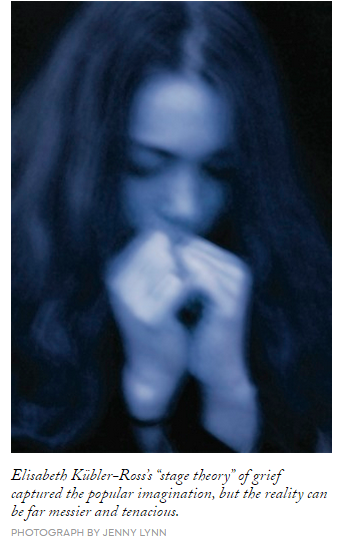In this talk, Laura offers us a window into the cumulative toll that can occur when we are exposed to the suffering, hardship, crisis or trauma of humans, other living beings, or the planet itself. Held within a larger context of systematic oppression and liberation theory, we'll dive into what gets hard and how to work toward reconciling it both individually and collectively.
Life and Death Planning: Low effort, High Reward. "Get Your Shit Together" Webresource
"There are a few simple things I wish I had taken care of before my life went sideways, like a will, living will, and some details jotted down. Should the ground fall out from under your feet—plan now for a softer landing. In fact, it's easy to finish the planning and basic papers your life needs.
In 2009 my husband was killed in an accident. In the following hours, weeks, and months I was shocked by the number of things we had left disorganized or ignored. Critical documents you can spend a fraction of the time doing now. Here are those core items, streamlined.
GYST™ now and breathe a huge sigh of relief. You can do it".
Advance Care Planning. Speak Up!
"Advance Care Planning is a process of reflection and communication. It is a time for you to reflect on your values and wishes, and to let people know what kind of health and personal care you would want in the future if you were unable to speak for yourself.
It means having discussions with family and friends, especially your Substitute Decision Maker – the person who will speak for you if you cannot speak for yourself. It may also include writing down your wishes, and talking with healthcare providers and financial or legal professionals"
Click on the above image to learn more.
The Way Forward: An Integrated Palliative Approach to Care.
The Art of Healing.
"As the parents of Lulu and Leo, we know that art and nature played a critical role in their short, beautiful lives and in the life of our surviving daughter, Nessie. We believe every child on the planet deserves the deep engagement with art, nature, and creativity that our children had, not simply for the sheer joy and excitement it brings children but for the powerful tool it can be. We have felt the critical importance of creativity as a healing force and want to ensure that these creative outlets are available to all children and communities facing adversity.
We created the Lulu & Leo Fund to inspire, engage, educate, heal and grow the hearts and minds of children facing hardships, giving them lifelong passion, skills and — most importantly — hope".
Grief Through a Child's Eyes.
Click on the above image to watch "Grief through a Child's Eyes" an original video that takes you inside a children's bereavement camp.
Finishing Strong: Moments of Life Made Possible by Hospice.
"In September 2012, Bryan Caldwell was diagnosed with Hodgkin’s Lymphoma. A former professional football player in the NFL, rancher and surfer, he embodies strength. His wife, Krista, a nurse with Houston Hospice El Campo, even tells the story of how the morning before he was diagnosed, Bryan mowed the yard with a collapsed lung.
Six months into his fight with lymphoma, Bryan learned his cancer was unresponsive to medical treatments. He knew he wanted to spend his remaining time living without pain, at home, surrounded by all he loved. So he chose hospice care.
'Our whole philosophy is not to stay sitting, it’s to stay moving and to keep living each moment that comes along,' says Bryan. 'Hospice provides that golden opportunity for me, every single day. If I have the energy and I feel up to it, I’m getting out there'.”
Trauma Workers Find Solace In A Pause That Honors Life After A Death.
"Jonathan Bartels is a nurse working in emergency care. He says witnessing death over and over again takes a toll on trauma workers — they can become numb or burned out. So the next time we worked on another person who didn't make it, I decided to be bold and stop people from leaving," he says. "I just said, 'Can we stop just for a moment, to recognize this person in the bed? You know, this person before they came in here was alive — they were interacting with family, they were loved by others, they had a life.' "
The team did it. Standing together silently, they stopped — just for a minute.
"When it was done, I said, 'Thank you all, and thank you for the efforts that we did to try and save them.' People walked out of the room, and they thanked me," Bartels says.
What's come to be called The Pause is now being taught as part of the curriculum at the university's nursing school. Emergency medical technician Jack Berner says it helps him handle the toughest cases. ‘It makes it so we can actually view the person as a person, rather than as a patient that we see on an everyday basis,’ he says. ‘You can relate more to the case, [knowing] it's somebody's father or their mother, their sister or their uncle, rather than somebody you just see for five minutes’."
What You Say To Someone Who’s Grieving Vs. What They Hear.
Navigating Grief and Loss as an Autistic Adult.
"The deaths I have experienced have mostly been at an arm’s length, due to family tensions, geographical separation, or a combination thereof. Until recently, I’d only ever been to one viewing — a member of my stepmother’s family whom I barely knew.
As a result, I have no blueprint for the what to expect in the social situations that have come with an event like this. I have been forced to guess my way through, at a time when my typical abilities are compromised by the emotional overload brought about by loss and grief. How well have I done? I honestly do not know. I don’t know what standard I’m being held to, and by whom. I have had to simply do my best, but I have been haunted by my struggle to know exactly what I need to do to be a good friend to someone who is no longer here to tell me what she expects".
Memoirs of a Griever.
"In writing this I have struggled to find a structure for the narrative to follow; grief has no structure, and it cannot be read. It is as C.S. Lewis cites in A Grief Observed:
“In grief nothing ‘stays put.’ One keeps on emerging from a phase, but it always recurs. Round and round. Everything repeats. Am I going in circles, or dare I hope I am on a spiral? But if a spiral, am I going up or down it?”
Henceforth, this piece will be structured by feeling. If it feels disorienting as you read, that’s because loss is disorienting. If it feels confusing, that’s because loss is confusing. If it feels uncomfortable, that’s because loss is uncomfortable. But, as I have found, and as I am finding on my best days, if I can sit with the disorientation, confusion, and discomfort of loss long enough, it can lead me to a greater appreciation of life and that the spiral C.S. Lewis describes can indeed bend towards the sun.
So let’s give it a red-hot go".
Everything Doesn't Happen For A Reason.
"I emerge from this conversation dumbfounded. I've seen this a million times before, but it still gets me every time.
I’m listening to a man tell a story. A woman he knows was in a devastating car accident; her life shattered in an instant. She now lives in a state of near-permanent pain; a paraplegic; many of her hopes stolen. He tells of how she had been a mess before the accident, but that the tragedy had engendered positive changes in her life. That she was, as a result of this devastation, living a wonderful life.
And then he utters the words. The words that are responsible for nothing less than emotional, spiritual and psychological violence:
Everything happens for a reason. That this was something that had to happen in order for her to grow.
Grief is brutally painful. Grief does not only occur when someone dies. When relationships fall apart, you grieve. When opportunities are shattered, you grieve. When dreams die, you grieve. When illnesses wreck you, you grieve.
So I’m going to repeat a few words I’ve uttered countless times; words so powerful and honest they tear at the hubris of every jackass who participates in the debasing of the grieving:
Some things in life cannot be fixed. They can only be carried".
Advice: What to say – and not say – to a friend who is recently bereaved.
"WE’VE ALL BEEN in a situation where we wanted to say something supportive to a person who has recently been bereaved.
Many of us will have also avoided a bereaved person out of fear: Either not knowing what to say or worrying about putting our foot in it by saying the wrong thing.
There are many aspects of grief and bereavement that people feel uncomfortable with and shy away from. But we don’t have to run away from someone who has just lost a loved one – we’re actually quite good at coming up with the right words. And, sometimes, the worst thing to do is saying nothing at all".
Good Grief: Is there a better way to be bereaved?
"It has become a truism of the hospice movement that people resist death if they have something left they need to say. After the documentary, Kübler-Ross emerged from her anomie to revisit what she had written about grief. Realizing that the stage theory had grown into a restrictive prescription for grief, she collaborated with David Kessler, a hospice expert, to write “On Grief and Grieving.” Near the end of a chapter about her own grief—which arrived late in life, following the death of her ex-husband—she noted, “I now know that the purpose of my life is more than these stages. I have been married, had kids, then grandkids, written books, and traveled. I have loved and lost, and I am so much more than five stages. And so are you.”
48 Questions to Ask Your Kids.
The Heart and the Bottle: A Tender Illustrated Fable of What Happens When We Deny Our Difficult Emotions.
"Jeffers tells the story of a little girl, “much like any other,” whose expansive and exuberant curiosity her father fuels by reading to her all sorts of fascinating books about the sea and the stars and the wonders of our world.
We witness the duo’s blissful explorations until, one day, we realize that the father is gone — the little girl finds herself facing the empty chair.
With exquisite subtlety and economy of words, Jeffers — whose mastery of the interplay between darkness and light extends as much to the paintbrush as it does to the psyche — silently uncorks the outpour of hollowing emotions engendered by loss".
Books for Kids (of All Ages) Coping With Anxiety.
"Working through your fears by reading other people’s experiences with them is free therapy that leaves you feeling less isolated. In addition to composite interviews on various topics, from bullying to performing poorly on a test to fleeing a war-torn country, the editor also provides extensive practical resources".














